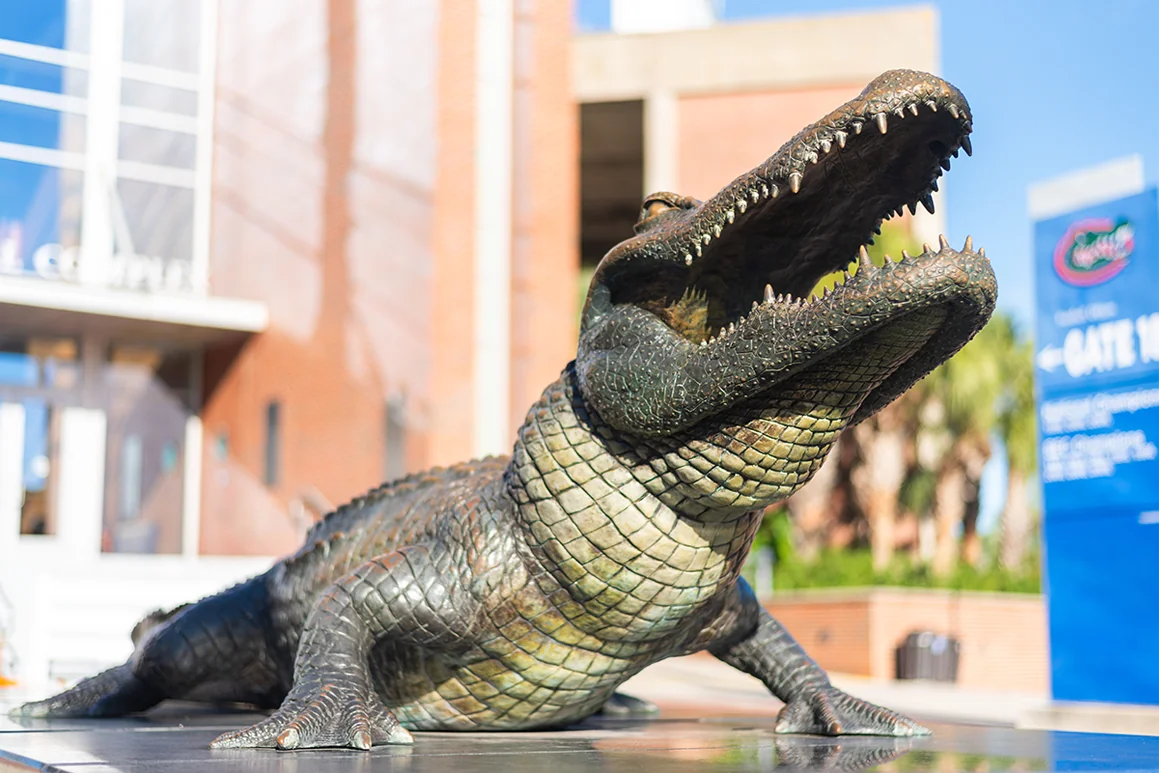If you have been charged with a theft offense throughout northern Florida, you could face severe penalties and consequences, including jail or prison time, fines, driver’s license suspension, a criminal record, job loss, and/or loss of educational opportunities. Theft allegations often arise after an individual has accidentally or unknowingly taken an item from a store or has mistakenly put an item in their purse or pocket. Although these acts may have been mistakes or accidents, Florida prosecutors will still attempt to prosecute to the fullest extent. Some of the most common theft offenses in Florida can include the following:
- Shoplifting
- Burglary
- Car Jacking
- Grand Theft Auto
- Petit Theft
- Petty Theft
- Petty Larceny
- Grand Theft
- Identity Theft
Gainesville Theft Defense Attorney
If you have been charged with a theft violation in Gainesville, or any of the surrounding areas in Florida, including Ocala, Alachua, and Lake City, contact the Galigani Law Firm. Call the Galigani Law Firm today for a free consultation at (352) 375-0812 about your alleged theft charge.
Theft Crimes Information Center in Gainesville
- Theft Crime Definitions in Florida
- Penalties for Florida Theft Offenses
- Civil Penalties for Florida Theft Crimes
- Gainesville Theft Crimes Resources
Theft Crimes in Florida
Common offenses associated with theft in Florida can result in charges for any of the following:
- Shoplifting – Fla. Stat. § 812.015 – An individual can be charged with this offense if they take merchandise or property out of a store, remove or change a tag or label from a store’s merchandise, or move the merchandise to another container with the intent to deprive the store’s owner of the full value for the item. This offense is punishable as a felony of the first or second degree depending on the value of the merchandise stolen.
- Petit Theft – Fla. Stat. § 812.014 – An individual can be charged with this offense if they knowingly take someone else’s property with the intent to deprive the owner of the item. This offense can be in the first or second degree. This offense is punishable as a misdemeanor of the first or second degree or felony of the third degree, depending on the alleged offender’s prior offenses and the type of property taken.Petit theft of the first degree involves property valued between $100 and $300. Any other property taken that is not grand theft or a petit theft in the first degree is a petit theft in the second degree.
- Grand Theft – Fla. Stat. § 812.014 – An individual can be charged with this offense if they knowingly take someone else’s property valued at $300 or more and they intend to deprive the owner of the property. This offense can be in the first, second or third degree, depending on the value of the amount taken. Grand theft is typically associated with grand theft auto. This offense is punishable as a felony of the first, second or third degree depending on the value of the items stolen.
Grand theft in the first degree typically involves stealing property valued at $100,000 or more. Grand theft in the second degree usually involves stealing property between $20,000 and $100,000. Grand theft in the third degree generally involves property valued at more than $300 but less than $20,000.
- Carjacking (Carjacking) – Fla. Stat. § 812.133 – An individual can be charged with this offense if they take a motor vehicle from another person with the intent to temporarily or permanently deprive the person of the motor vehicle. This offense is punishable as felony of the first degree that can result in life imprisonment, depending on whether a deadly weapon was used during the commission of the offense.
Penalties for Florida Theft Offenses
Fla. Stat. §§ 775.082, 775.083 and 775.084 provide the penalties for various theft offenses throughout Florida. The degree of theft crime charges can vary depending on the amount of the property that was stolen, the type of victim, whether the alleged offender was a habitual criminal or habitual violent criminal, whether the offender has committed prior theft offenses, and/or whether the alleged offender used a weapon during the commission of the offense. The following are the statutory minimum penalties for theft offenses in Florida.
- A misdemeanor of the second-degree theft offense can result in up to 60 days in jail and/or a fine up to $500. Petit theft in the second degree is classified as this type of misdemeanor.
- A misdemeanor of the first degree can lead to one year in jail and/or a fine up to $1,000. Petit theft in the first degree can result in this type of misdemeanor.
- A felony of the third-degree theft offense can result in a prison sentence up to five years and/or a fine up to $5,000. Shoplifting of property worth $300 or more and grand theft in the third degree can result in this degree of a felony.
- A felony of the second degree can result in imprisonment up to 15 years and/or a fine up to $10,000. Shoplifting property valued at $3,000 or more and grand theft in the second degree can result in this degree of felony.
- A felony of the first degree can result in up to 30 years in prison or life imprisonment and/or a fine up to $10,000. An individual who commits carjacking or grand theft in the first degree can result in this degree of felony.
Possible Civil Penalties for Theft Offenses
Any person who can prove they were injured or damaged by any theft offense in Florida can receive civil damages for their offenses according to Fla. Stat. § 772.11.
If anyone, including a store owner, wants to pursue an action for civil damages, they are required to first send a demand letter to the alleged offender demanding payment for $200 or the treble damage amount.
If the alleged offender does not pay the injured party, or person who was stolen from, within 30 days, the injured party is entitled to sue the alleged offender for civil damages. If the injured party sues an alleged offender, they can also recover court costs and legal fees.
Many times, store owners will send an alleged shoplifter demands for payment of the allegedly stolen items or threaten to civilly sue the alleged offender. However, these threats are often empty, and it is in the alleged offender’s best interest to hire an attorney who will make every effort to help them avoid these harsh demands in addition to any criminal penalties.
Gainesville Theft Crimes Resources
Florida Statutes Online – This link is to Chapter 812 of the Florida Statutes, which contains all of the state’s laws regarding theft offenses. This chapter defines all prohibited theft, robbery and related crimes and the penalties for committing such offenses.
Kleptomaniacs and Shoplifters Anonymous – Kleptomaniacs and Shoplifters Anonymous, also known as CASA, is a national organization that provides an environment where individuals suffering from addictive-compulsive behavior can speak with individuals who also suffer from addictive-compulsive behavior and find ways to treat their addiction.
National Association for Shoplifting Prevention – The National Association for Shoplifting Prevention, also known as NASP, is a national non-profit organization that aims to prevent shoplifting by researching information on individuals who commit retail theft, exploring ways to prevent shoplifting with government officials and developing programs that are focused on preventing shoplifting.
Florida Auto Theft Intelligence Unit – This state non-profit organization was created to assist theft investigators and train law enforcement officers in resolving Florida’s auto theft problem. The Florida Auto Theft Intelligence Unit (FATIU) also works with prosecutors and legislators on proposed legislation affecting auto theft and insurance fraud.
Galigani Law Firm | Florida Theft Crimes Lawyer
Contact the Galigani Law Firm today for a consultation about your alleged theft offense throughout Alachua County in Florida. Dean Galigani is an experienced criminal attorney in Gainesville who will make every effort to fight the criminal allegations against you. Call (352) 375-0812 or send an online message for a free consultation about your alleged theft crime throughout the counties in North Central Florida, including Marion County, Levy County, Columbia County and Gilchrist County.








